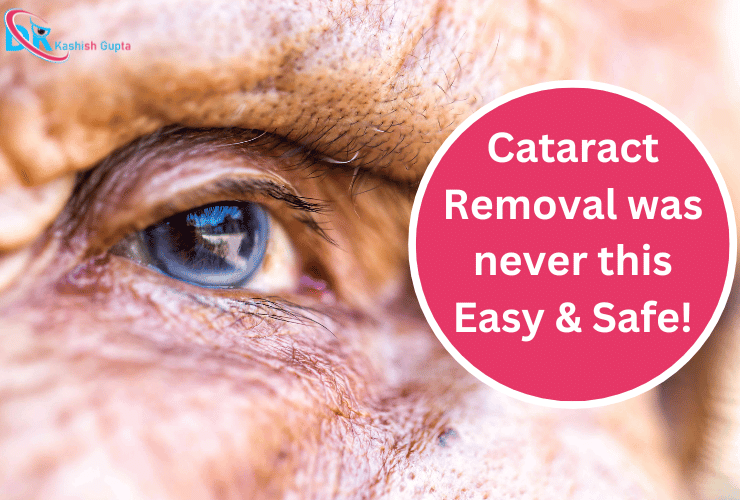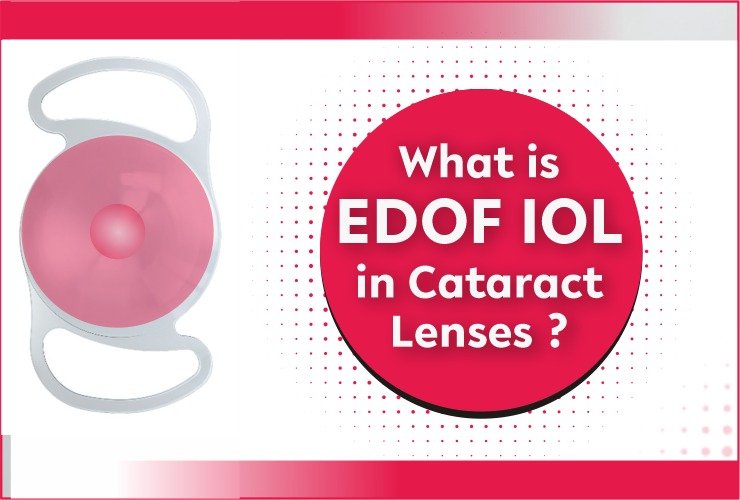Over the years, the discipline of ophthalmology has seen incredible advances, and one such innovation that has altered cataract surgery is the combination of robotic accuracy, premium IOL lenses, and femtosecond blade-free technology. Cataract constitutes a clouding of the eye’s natural lens, which may impair eyesight and affect the quality of life. However, patients may benefit from better visual results and quality of life after surgery because of these cutting-edge advancements. Dr Kashish Gupta is a lead robotic Cataract surgeon trained at the world’s best Singapore National Eye Centre. His expert inputs and understanding are added here to give us a better insight into the advantages of Robotic Cataract Surgery, also known as FLACS – Femto Laser-assisted cataract surgery.
Robotic Precision and Femto Blade-Free Technology
Traditional cataract surgery involved manual incisions and handheld surgical instruments, which, although practical, had limitations in precision and reproducibility. Enter femtosecond laser technology – a revolutionary approach that combines robotic precision with blade-free incisions. This method uses ultra-fast laser pulses to make precise incisions in the cornea, making the treatment more predictable and regulated.
Why is femtosecond laser technology a preferred choice for Cataracts
- Enhanced Precision: The laser’s precision outperforms human procedures, guaranteeing consistent and repeatable outcomes.
- Customized Incisions: Surgeons can customize incision size, shape, and location based on the patient’s unique eye anatomy, leading to optimized outcomes.
- Capsulotomy Perfection: The technology aids in creating a perfectly sized and centred capsulotomy, the opening in the natural lens, which is crucial for IOL placement.
- Reduced Energy: The laser’s precision minimizes the amount of energy required, minimizing tissue damage and promoting faster recovery.
Premium IOL Lenses
While cataract surgery traditionally involved the replacement of the clouded natural lens with a monofocal IOL, advancements have led to the development of premium IOL lenses. These lenses go beyond simply restoring clear vision; they offer a range of focusing abilities that can significantly reduce patients’ dependence on glasses or contact lenses.
Types of premium IOL lenses for Cataract Surgery include
Multifocal IOLs: These IOL lenses provide sharp vision at multiple distances, enabling patients to see well up close, intermediate, and far away.
Toric IOLs: These premium IOL lenses are used for Correcting astigmatism. Toric IOLs ensures sharper focus by compensating for irregular corneal curvature.
Extended Depth of Focus (EDOF) IOLs: A relatively fresh addition to IOL choices, EDOF Lenses enhance a patient’s range of vision, reducing the need for reading glasses while maintaining reasonable distance vision.
Robotic Cataract + Premium IOL Lenses

When femtosecond blade-free technology and quality IOL lenses are combined, they establish a synergistic alliance that improves the cataract surgical experience. Surgeons may enhance the placement and alignment of premium IOLs by harnessing the accuracy of the femtosecond laser, enhancing their efficacy and giving patients the best possible visual results.
BLOG SUMMARY
With cutting-edge technology and innovative approaches, the landscape of cataract surgery has changed dramatically to improve Surgery results and quality of life. The Blend of robotic precision through femto blade-free technology combined with premium IOL lenses has transformed cataract surgery into a customized and. As these advancements progress, the future of cataract surgery shines even brighter, promising clearer, more vibrant worlds for countless individuals. Remember, if you or a loved one are considering cataract surgery, it’s crucial to consult with a qualified ophthalmologist who can guide you through the most suitable options based on your unique needs. The Eye department at Max Hospital Bathinda is a leading cataract center equipped with the latest Robotic Cataract technologies to help patients get a seamless cataract surgery experience.

